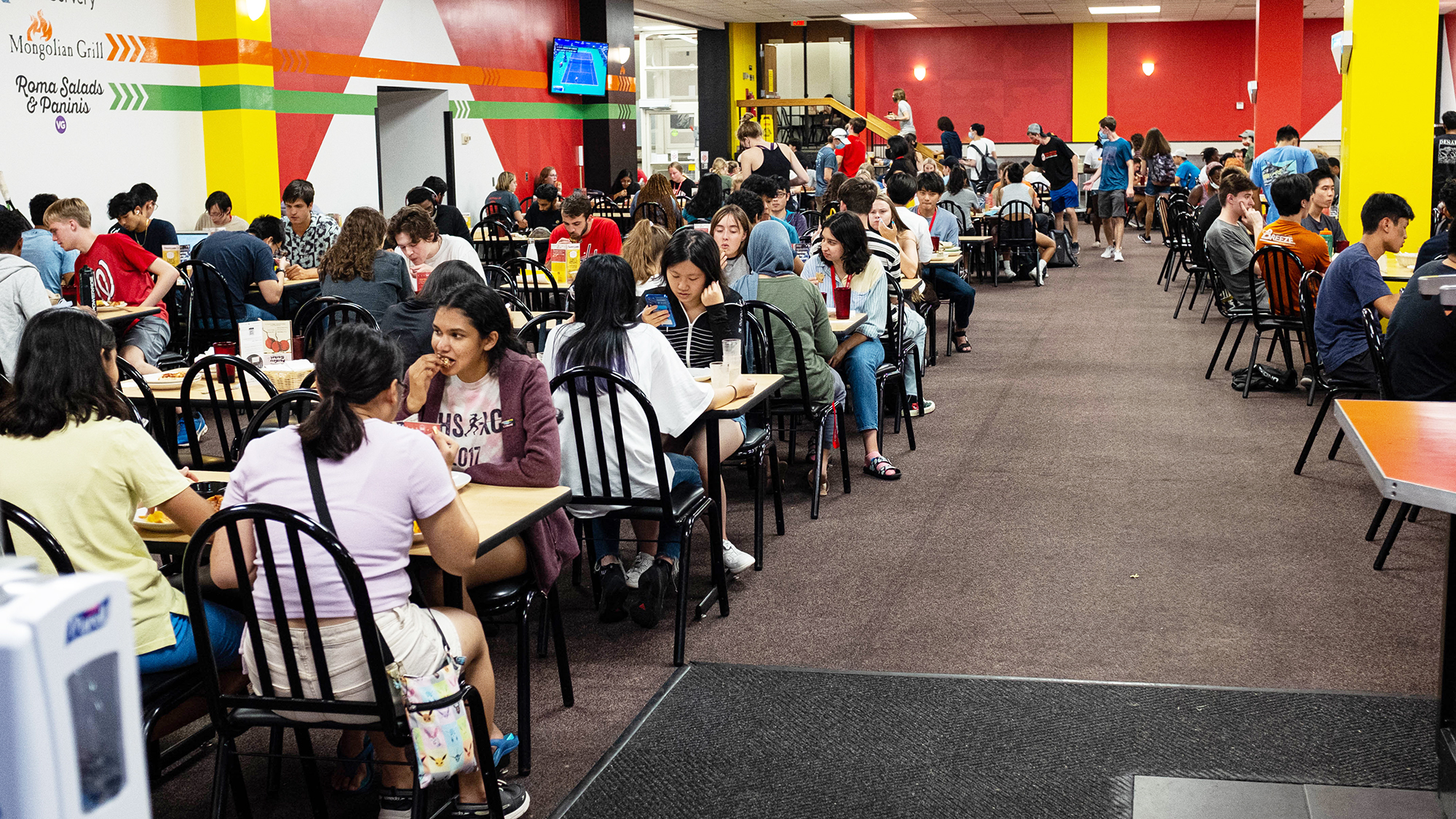In the first week of the semester, there was a 36-hour period where University of Maryland freshman computer science major Blake Cox didn’t eat.
“The prospect of going to the dining hall was so stressful that I just couldn’t,” Cox said.
Although Cox has a dining plan, he has only gone to the dining hall twice this semester.
For Cox, it can be stressful to find foods that don’t trigger his sensitivities to food textures while also navigating the room to find a table and putting his plate away.
This semester, the university dining halls are not offering takeout — a departure from the previous two semesters, when the pandemic reduced the amount of in-person dining.
For students who find themselves uncomfortable in those crowded and loud environments, the return to in-person dining has not been smooth. And, they say the university should do more to accommodate students on a dining plan who don’t feel comfortable eating in person.
The University Health Center offers medical exemptions to some students who do not feel comfortable eating indoors, according to a statement. Under the exemptions, the students fill a plate of food in the dining hall and give the plate to a staff member who puts the food in a takeout box. The accommodation allows students to eat three meals a day rather than take full advantage of the unlimited anytime dining plan, dining services spokesperson Bart Hipple said.
The health center also offers exemptions to the dine-in policy for students with an increased risk of contracting COVID-19 or developing severe COVID-19 symptoms. As of now, the health center has approved three medical exemptions.
[UMD Dining Services experiences some food shortages]
When Jane, a junior criminal justice and government and politics major who agreed to be identified by a pseudonym for privacy reasons, eats at the dining halls, she has to come prepared.
Jane has autism, and the sensory sensitivities that autism brings make eating at the dining hall difficult, she said.
“I’ve got to have earplugs and headphones and try to sit in the least crowded area,” Jane said. “There’s a lot of noises, a lot of people. Everything’s always different every time you go.”
Instead of going to the dining hall, Cox said he often goes to the North Convenience Shop or gets food at Stamp Student Union, where the tables are more spread out, and it is less crowded.
Cox is looking into getting a medical exemption from the dine-in policy at the dining halls, he said, but he is still in the early stages of the process.
Although Cox has a dining plan, he has only gone to the dining halls twice this semester.
While bringing earbuds or other remedies to the dining hall may help with his sensory sensitivities, Cox said it doesn’t solve the bigger problem at hand.
“The issue is more the way the dining hall is structured inherently that keeps me from being able to make full use of it,” Cox said.
[Some UMD students want to see return of takeout option at dining halls this year]
Emily Woodie, a junior psychology major, said offering medical exemptions to people like her with autism and sensory sensitivities is “the bare minimum” that the university can do to accomodate people with disabilities. She wants to see Dining Services provide more calm, quiet spaces for people with autism or sensory sensitivities to eat, she said.
Woodie went to the dining hall a few times this semester to see if she should get a dining plan. But she had experiences similar to Jane and Cox’s.
“It’s very stiff, like overstimulating visually,” Woodie said, “It’s difficult to sit in [the dining halls] without feeling extremely overstimulated and anxious because of all the noise going on.”
Woodie also said that a side effect of her autism is executive dysfunction, which means that in the midst of getting all of her school work done, finding time to make food for herself during the day can “get put on the back burner.”
With a dining plan, Woodie could eat at the dining halls in between her classes, which would help her get meals easily. But she said eating in the “unbearable” dining halls is not worth it.
“I just think as a whole, the University of Maryland could be better at listening to student needs, especially for people who have sensory issues or other things going on,” Woodie said.
This story has been updated.



